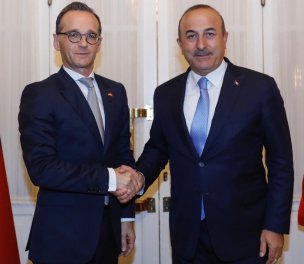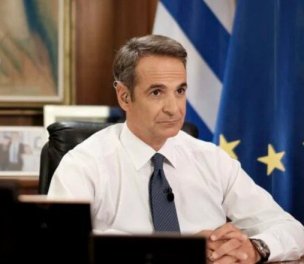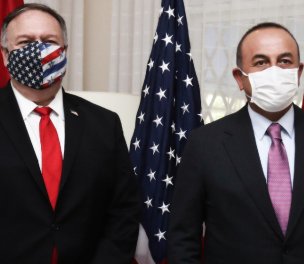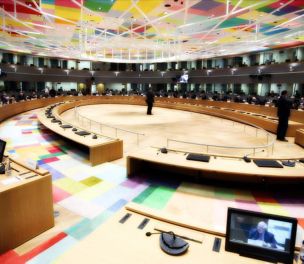Photo: AA
Germany's Chancellor Angella Merkel and President Emmanuel Macron of France called for de-escalation of tensions in the Eastern Mediterranean and said they would support diplomatic efforts to resolve maritime boundary disputes between Greece and Turkey.
Merkel reiterated her call on Athens and Ankara to resume direct talks to resolve their long-standing disputes and said Berlin and Paris would enhance their cooperation to facilitate a diplomatic solution.
"We need stability in the Eastern Mediterranean, not tensions. We are aware of the critical situation there. I am confident that if Germany and France join their forces, hopefully, we can find a good solution, which can make cooperation possible," Merkel told a joint news conference Macron, following their meeting at Macron's presidential mansion of Fort de Bregancon on the Mediterranean coast.
Merkel also underlined that it was important to maintain unity among EU member states, and demonstrate solidarity with EU members Greece and the Greek Cypriot administration.
Meanwhile, Macron renewed his criticism of Turkey, but also expressed readiness to promote a constructive dialogue among all states in the Eastern Mediterranean, including Turkey, to de-escalate tensions and resolve current disputes.
He also argued that recent diplomatic initiatives of Germany and France on the Eastern Mediterranean were not contradictory but complementary, and said they were pursuing the same goals, such as supporting the sovereign rights of EU member states and protecting stability in the region.
He underlined the importance of Merkel's diplomatic initiative and said Paris will support Berlin's efforts.
Foreign Minister: Greece harms the EU's interests
The Ministry of Foreign Affairs called on the EU to urge Greece and Southern Cyprus for restraint rather than Turkey amid escalating tension in the Eastern Mediterranean.
"If the EU wants to be a part of the process that aims for peace, prosperity and stability in the Eastern Mediterranean, it must be objective and honest. As shared with the public earlier, the calls for restraint should be directed to Greece and the Greek Cypriot administration, which harm EU's interests and escalate the tension by exploiting the EU membership solidarity, rather than Turkey on the side of dialogue and cooperation," Hami Aksoy, the spokesman for the Foreign Ministry, said in a written statement yesterday.
His remarks came as a response to a statement by the EU following a videoconference on Wednesday.
Aksoy said the statement shows that the EU is "held hostage to the manipulation and blackmail of the two member states."
He also stressed that Turkey will not abdicate its rights, yet, continue to support negotiations and respond to positive steps around good neighborly relations and in line with international law.
Greece: EU's stance against Turkey different than Belarus
Greece's PM Kyriakos Mitsotakis on Wednesday criticized the EU for "adopting a different stance on Belarus and another on Turkey," the Greek City Times reported.
During the EU's extraordinary meeting, Mitsotakis said that Europe cannot adopt "two meters and two weights" for Belarus and Turkey and that the EU approach in terms of human rights and the rule of law can not be different for Belarus and different for Turkey.
In response, European Commission President Ursula von der Leyen said "These are different cases, we have a long history with Turkey," adding that "all options are on the table" regarding Ankara's activities in the Eastern Mediterranean.
Latest developments in the Eastern MediterraneanOn July 28, Turkey announced that it suspended hydrocarbon exploration activities in the Eastern Mediterranean and stated that it was ready to talk with Greece. On August 6, Greece and Egypt signed a maritime border agreement. On August 10, Turkey announced that its drillship Oruç Reis would resume energy exploration in the Eastern Mediterranean. It said the ship will continue its work along with the ships Cengiz Han and Ataman until August 23. On August 14, the EU foreign miniters discussed the crisis at an extraordinary meeting, calling on Turkey to end hydrocarbon exploration activities in contested waters. On August 16, Turkey issued a navtex, announcing that its drill ship Yavuz will continue its work exploring for energy resources off the island of Cyprus. |
(VK)




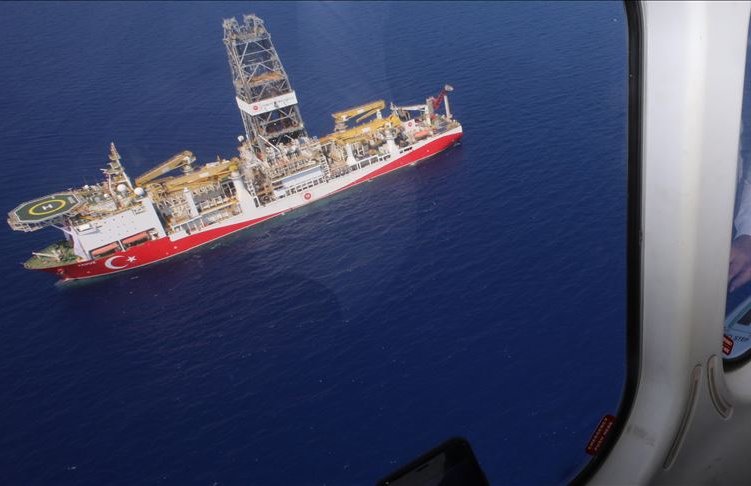
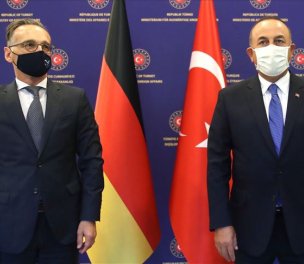
sa.jpg)
